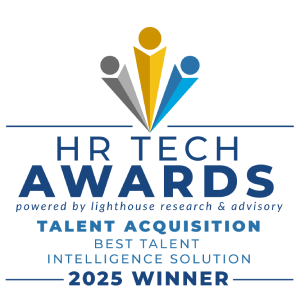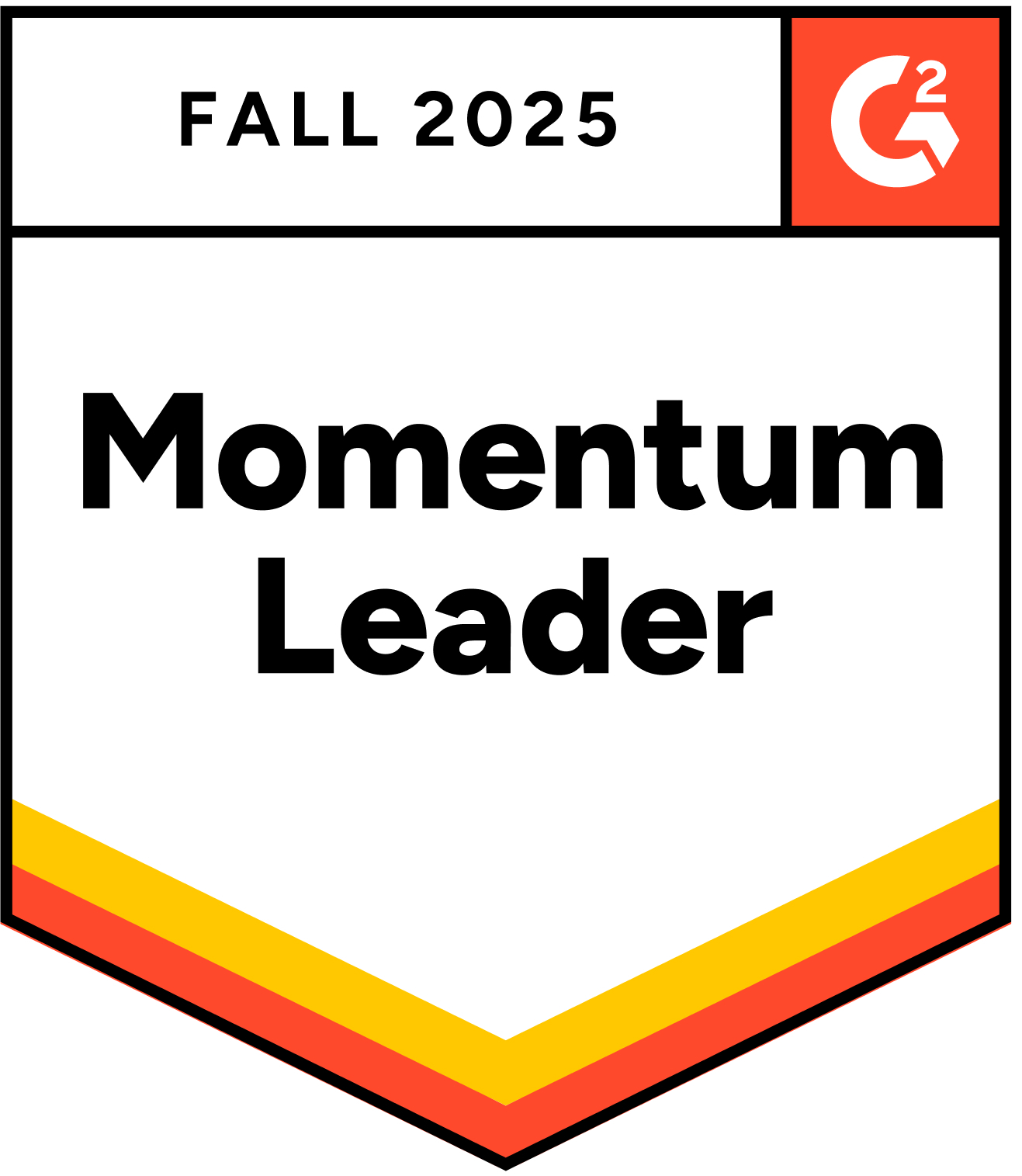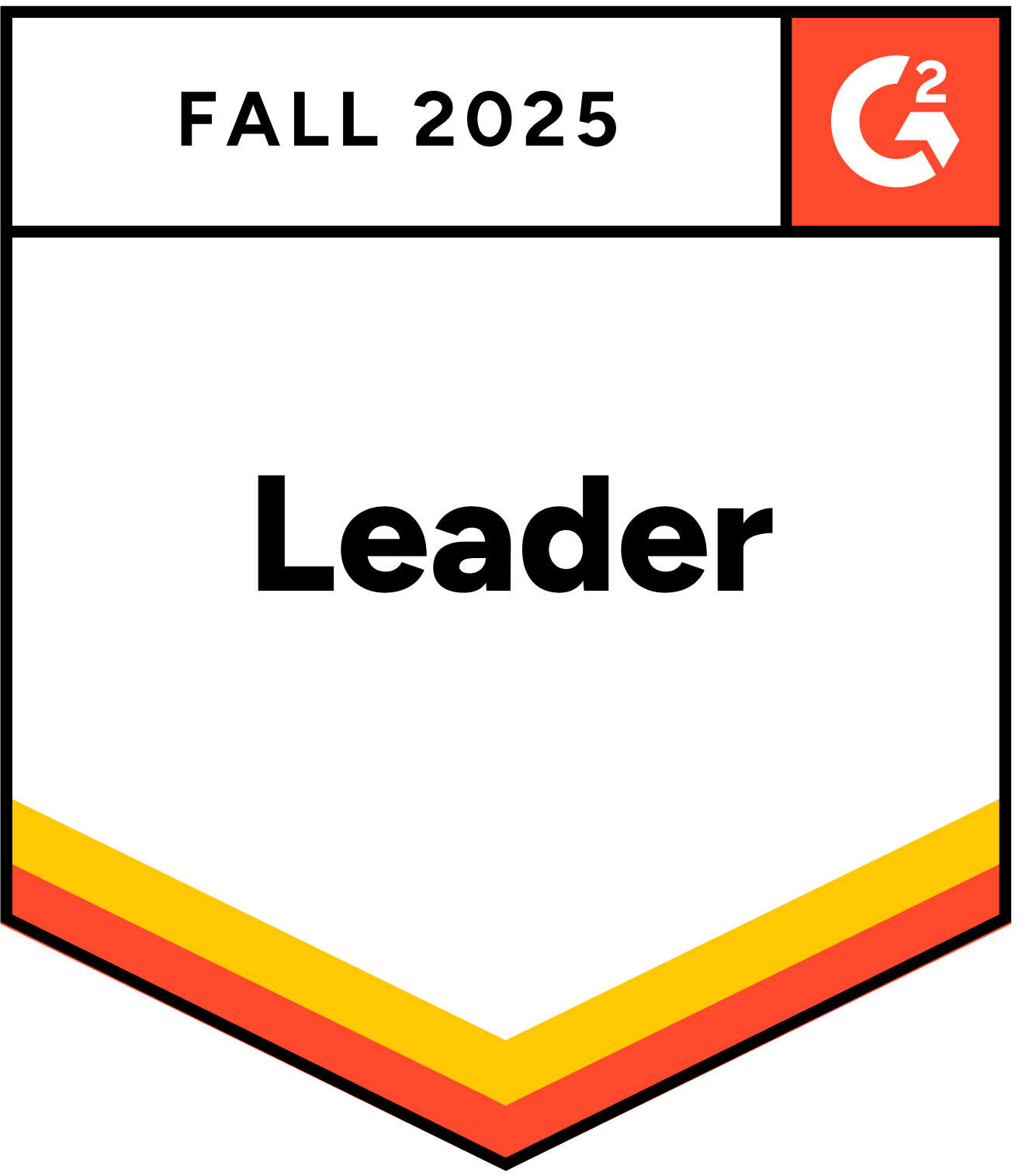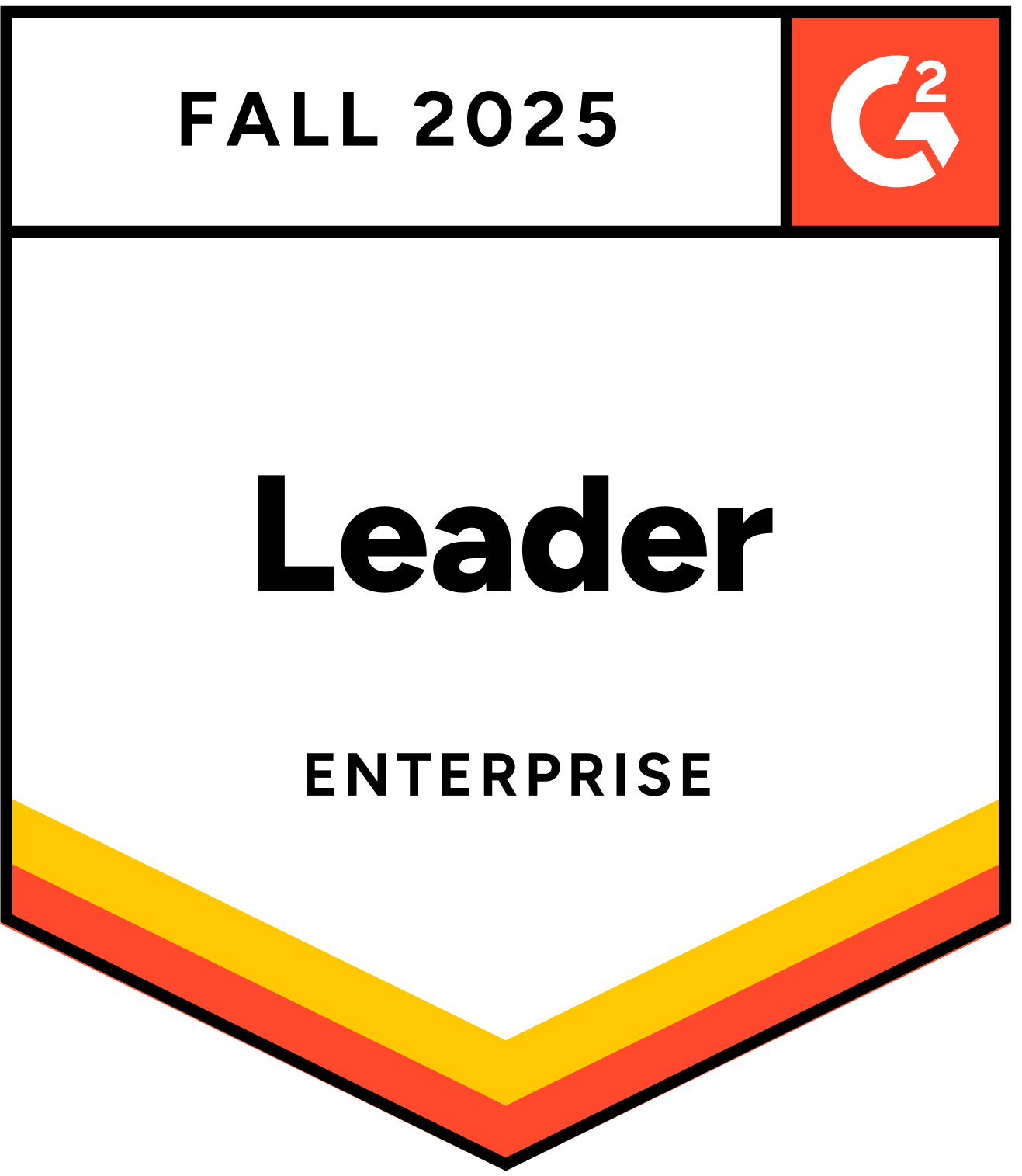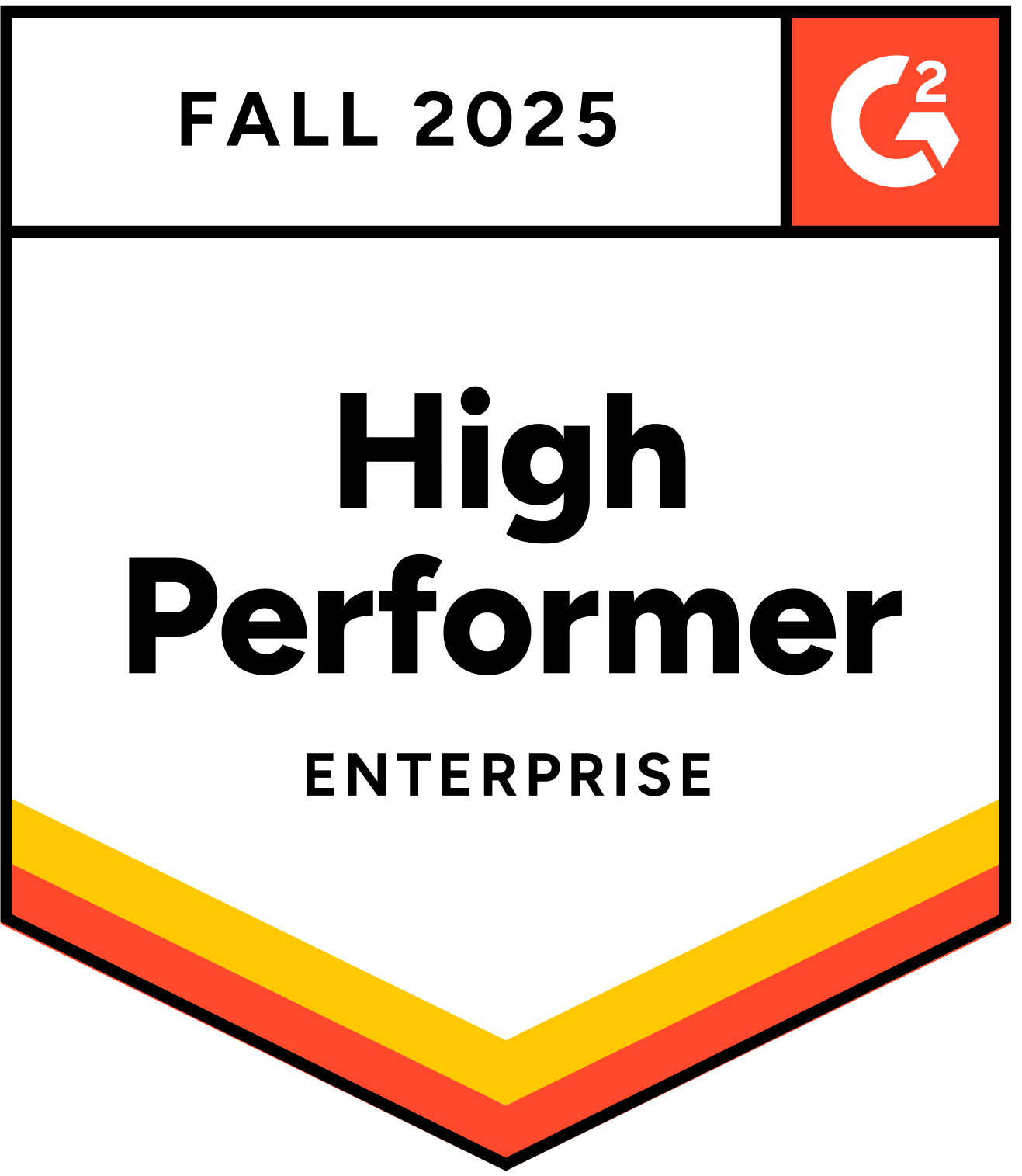Summary
Chatbots in recruitment are AI-driven tools that automate key hiring tasks like answering candidate questions, screening applications, and scheduling interviews. They help recruiters save time, provide instant responses, and keep candidates engaged throughout the process. By managing repetitive interactions efficiently, chatbots allow recruiters to focus on building relationships and delivering a more personalized, human hiring experience.
Introduction
We’ll state the obvious: AI is everywhere. And it’s transforming industries at a pace we’ve never seen. Recruitment is no exception.
Among AI’s most impressive feats in our space is the evolution of chatbots. What were once basic, rule-based tools have now evolved into sophisticated, conversational assistants – all thanks to the wonders of gen AI. And these modern chatbots aren’t just following scripts and giving predictable answers – they’re actually utilizing conversational AI to engage in meaningful dialogues, understand nuanced context, and even anticipate what candidates might need next.
For talent acquisition and HR professionals, this shift isn’t just interesting – it’s downright revolutionary. The rise of AI-powered chatbots (AKA conversational AI assistants) may very well mean a new era of recruitment, where efficiency meets empathy, and automation doesn’t come at the expense of personalization.
Now, let’s get to the nitty gritty.
What Is a Recruitment Chatbot?
A recruitment chatbot is a tool that automates parts of the hiring process. It can chat with applicants, answer questions, schedule interviews, and even handle basic screening tasks. Essentially, it’s a virtual assistant that’s always available to help manage candidate communication.
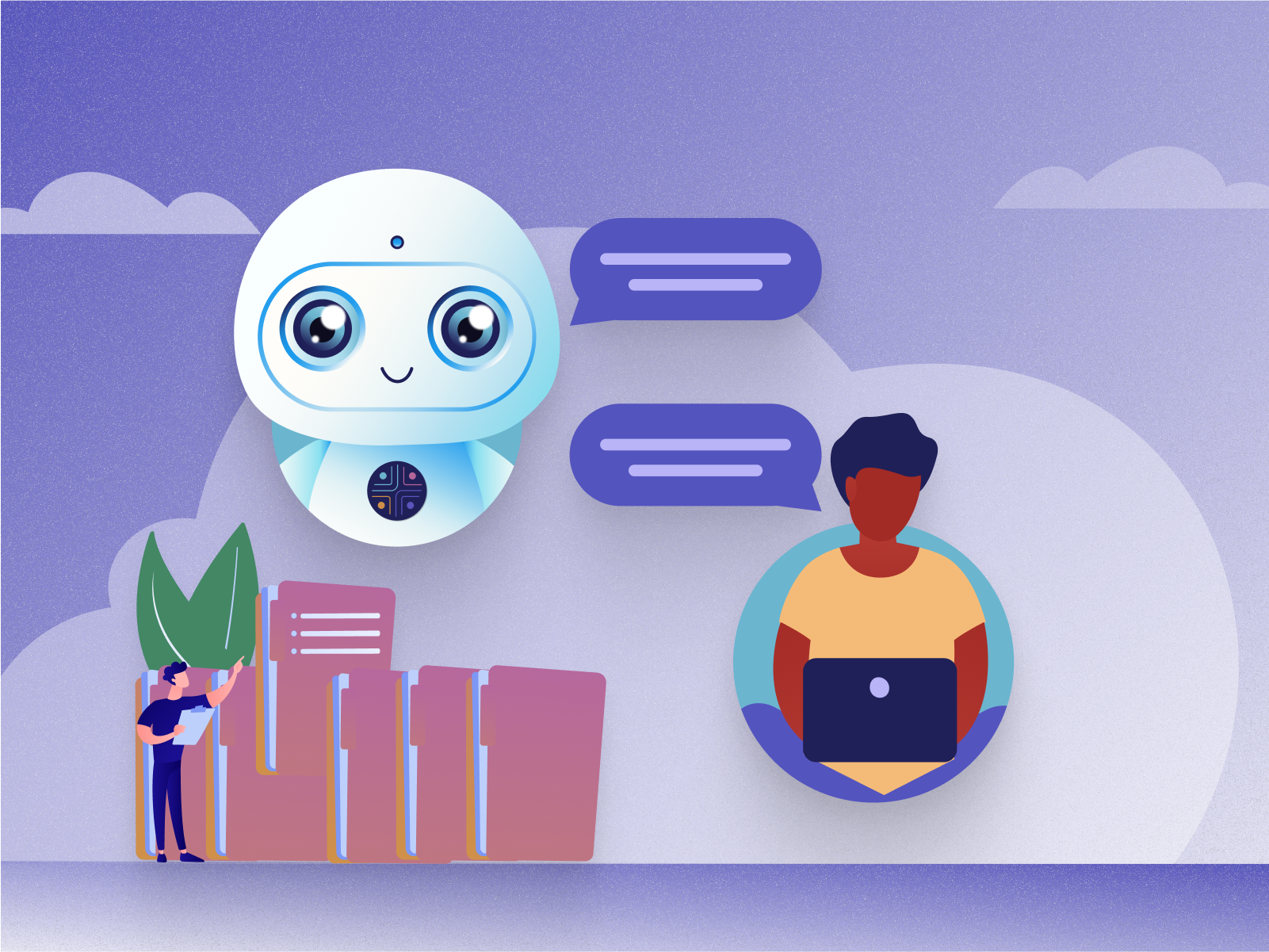
But let’s dive deeper, because it’s never quite that simple, is it?
Types of Recruitment Chatbots
Chatbots were very simple and downright basic before the AI wave. With advancements in natural language processing (NLP) and machine learning (ML), their capabilities have expanded dramatically.
Broadly, chatbots can be classified into two categories. Now, we’ll be referring to these two kinds of chatbots throughout, so take a good look! 🙂
Traditional chatbots: These operate on predefined scripts. They follow a set of rules to answer questions, which means their responses are limited to what has been pre-programmed. While they can handle basic queries, their lack of adaptability usually leaves candidates frustrated. Most of us can relate to this in some way, whether trying to reach the operator at your local bank or changing your airline reservation. Bleck.
AI-powered chatbots: The next generation of chatbots, powered by gen AI, can understand and respond to open-ended questions. These chatbots learn from each interaction, becoming smarter and more intuitive over time. Unlike their rule-based counterparts, AI-powered chatbots can engage in meaningful conversations, making them a lot more effective in providing a seamless – and satisfying – candidate experience.
Humble brag: It’s important to note that while many companies have tried to upgrade older chatbots with gen AI features, Joveo’s MOJO Recruiting Assistanthas been built from the ground up using advanced AI – just for you!
Benefits of Using an AI-Powered Recruitment Chatbot
It’s clear that bringing chatbots into the hiring process is packed with benefits. Let’s take a closer look to see how the next generation of AI-powered chatbots can significantly enhance the recruitment process for recruiters and candidates, alike.
- Improve communication: One of the biggest pain points for candidates is the dreaded “application black hole.” They submit an application and… POOF, it’s gone. AI-powered chatbots ensure candidates receive updates at every stage of the recruitment process – and the best part? Forgetting ain’t an option! Whether it’s acknowledging the status of an application or a reminder about an upcoming interview, chatbots keep candidates informed and engaged, reducing anxiety and frustration.
- Greater consistency: Consistent communication is really important when it comes to maintaining a positive employer brand. Modern, AI-based chatbots enable uniform messaging, ensuring that each and every candidate receives accurate and up-to-date info, all per your unique brand guidelines.
- Enhance candidate engagement: AI-powered chatbots can engage with candidates around the clock, answering questions and providing guidance whenever it’s needed. Thanks to 24/7 availability, candidates can interact with chatbots on their schedules, keeping them engaged and connected, even outside of your regular business hours.
- Increased accessibility: Information is power. AI-powered chatbots ensure that candidates have instant access to the info they need. Whether it’s details about a specific job like salary range, insights into company culture, or answers to frequently asked questions, they deliver this info on demand. And immediate access means candidates can make more informed decisions, faster.
- Reduce bias: By standardizing the initial screening process, chatbots can help reduce unconscious bias in recruitment. They evaluate candidates based on objective criteria, ensuring a fairer hiring process.
- Increase productivity: AI-powered chatbots take on those repetitive and time-consuming manual tasks that bog recruiters down. From answering FAQs and scheduling interviews to conducting initial screenings. The end result? Recruiters can focus on more strategic activities like engaging with top talent and improving recruitment strategies.
- Better candidate experience: We all know how stressful job hunting can be, and it’s often a pretty uncertain process for candidates. BUT, a well-trained AI-based chatbot can significantly improve the experience by providing clear, timely, and helpful info throughout the journey. By reducing the ambiguity and delays, these AI-powered assistants can make the process smoother and more candidate-friendly.
- Analyze candidate concerns: AI chatbots are not just tools for communication – they’re also powerful sources of data. This is a great way to analyze interactions with candidates, identify common concerns, preferences, and pain points. This data can help train the chatbot, but also provides recruiters with insights that can be used to refine their recruitment strategies, improve engagement, and address potential issues before they become full-blown problems.
- Greater scalability: For organizations that need to handle large volumes of applications, scalability cannot be ignored. AI-powered chatbots – unlike hoo-mans – can engage with thousands of candidates simultaneously without compromising on quality. This means that all candidates receive timely responses, even during peak hiring periods, making high-volume recruitment more manageable. We know just how tough it gets during peak season!
Challenges of Using a Recruitment Chatbot
Traditional chatbots – and sometimes these fabulous, new-fangled AI-based ones, too – come with their own set of challenges. These can make them less effective and may impact your overall recruitment strategy, so pay attention and ask your vendor(s) the right questions!
Data privacy concerns: Handling candidate data is a big responsibility, and not all chatbots are equipped with the most robust security measures. Without proper encryption and data protection protocols, there’s a risk of sensitive info being compromised, leading to potential breaches and regulatory issues.
Lack of human touch: Old school, traditional chatbots fail to provide the personal connection that candidates value and also appreciate. These bots operate on pre-set scripts and can’t adapt to the nuances of a conversation, making interactions feel robotic (duh) and impersonal. This can lead to a less than stellar candidate experience.
High resource investment: Setting up and maintaining traditional chatbots can require significant resources. From initial development to ongoing updates, these bots demand continuous investment – particularly challenging for smaller organizations with tighter budgets.
Integration issues: Some chatbots may struggle to integrate seamlessly with your existing tech stack. This may result in data silos, where info is not shared between systems. And you know what that means: inefficiencies and errors in the recruitment process! No bueno.
Monitoring and optimization: To keep chatbots functioning effectively, especially the traditional ones, continuous monitoring and optimization is necessary. Without regular updates and fine-tuning, these bots can become outdated and less effective over time, requiring more and more manual intervention.
Hallucinations: A newer issue in the chatbot world is “hallucinations,” where AI-powered bots – particularly those built on top of dated technology – generate responses that are inaccurate or entirely fabricated. This can lead to misinformation being shared with candidates, damaging trust and potentially harming your employer brand.
Use Cases for a Recruitment Chatbot
AI-powered recruitment chatbots can speed up various stages of the hiring process, improving the candidate experience, and allowing recruiters to focus on what truly matters – connecting with top talent. Let’s look at some of the most impactful ways these AI-driven tools can be used… exciting stuff!
- Automated candidate screening: One of the most time-consuming tasks in recruitment is going through countless resumes to find candidates who meet basic requirements. This is where recruitment chatbots can help, automatically screening candidates based on predefined criteria. This speeds up the recruitment process and helps ensure that only the most suitable candidates move forward. Ta-da!
- Seamless interview scheduling: Coordinating interview schedules between candidates and hiring managers can be a logistical nightmare – no exaggeration. AI-powered chatbots can handle all the back-and-forth, check availability, propose time slots, and confirm appointments – all without manual intervention.
- Initial assessments: Beyond screening, today’s chatbots can take care of initial assessments, gauging a candidate’s suitability. They can ask targeted questions about a person’s experience, technical skills, or even hypothetical scenarios relevant to the job. This helps recruiters identify candidates who not only meet the basic qualifications, but also align closely with the job’s specific demands.
- Candidate update automation: As mentioned above, communication is oh-so important in establishing and maintaining a positive candidate experience. There is nothing worse than being left in the dark. Chatbots are great for sending updates at various stages, shining a light on the process.
- Better onboarding: The process doesn’t end when an offer is accepted; onboarding is just as crucial. Chatbots can easily guide new hires through the onboarding process, providing essential info, answering FAQs, and assisting with any necessary paperwork.
- Referral program management: Employee referrals are often a goldmine for finding great talent, but managing referral programs can get to be a bit much. Chatbots can collect referral information, track the progress of referred candidates, and even send reminders to employees about the program! By making it easier for employees to participate, chatbots increase referral rates, which often means higher-quality hires.
- Collect candidate feedback: After interviews or assessments, chatbots can also collect feedback. This info can be used to improve the recruitment process and enhance candidate experience in the future.
- Clarifying candidate queries: Job seekers usually have a lot of questions about the role, the company culture, benefits, and more. Chatbots, with 24/7 availability, are perfect for handling these queries. Whether it’s the middle of the night or a weekend, candidates can get instant answers – and who doesn’t like instant gratification?
Features to Look for in Your Next Recruitment Chatbot
When choosing a recruitment chatbot – and we strongly recommend an AI-powered recruiting assistant like Jo, it’s important to consider the features that you’ll need to support your hiring process. Here are a few to get you thinking.
- Branding and customization: Your chatbot really, really should reflect your company’s brand and tone of voice. So, don’t forget to look for a chatbot that allows you to customize the design, language, and tone.
- Conversational design: A good recruitment chatbot should feel natural and human-like in its interactions. It should be able to understand and respond to open-ended questions, making candidates feel like they are having a real conversation. So, keep the principles of conversational design in mind.
- Seamless integration: Ensure that the chatbot can integrate smoothly with your existing applicant tracking system (ATS) and any other recruitment tools you’re using. This will help streamline your recruitment process and avoid data silos.
- 24/7 availability: Candidates often apply for jobs outside of normal business hours. A chatbot that is available around the clock will provide instant responses, keeping candidates engaged and informed.
- Multilingual support: Whether your company recruits locally or globally, look for a chatbot that can interact with candidates in multiple languages – reach a wider talent pool and give your candidates a fab experience.
- Data-driven insights: Chatbot data can help you identify trends and areas for improvement in your recruitment process. So, the tip here is to look for one that can analyze interactions and provide reports on candidate behavior. And make sure it integrates with your current reporting! Just say “No!” to data silos.
- Scalability and flexibility: Your chatbot should be able to handle a large volume of interactions without compromising performance. It should also be flexible enough to adapt to changes in your recruitment process – change is the only constant!
- Omnichannel support: A good chatbot should be able to interact with candidates across multiple platforms: website, social media, messaging apps, etc. This ensures that you can reach candidates – and they can reach you! – practically anywhere.
- Training with your data: Some companies offer chatbots that are entirely managed by the vendor, which means you have no control over the training data. We strongly suggest looking for a chatbot that allows you to train it with your own data, ensuring that it understands your unique recruitment needs.
Tips to Choose the Recruitment Chatbot for Your Business
Choosing the right recruitment chatbot is a critical decision that can significantly impact your hiring process. With so many options available, make sure you select a solution that aligns with your org’s needs and goals. Here are four key tips to help you make the best choice.
- Assess your specific needs: Begin by clearly identifying the challenges you want to solve. Whether it’s automating candidate screening, enhancing communication, or managing high-volume recruitment, this will guide you toward the right solution. This is the foundation.
- Prioritize essential features: Not all chatbots are created equal. Focus on those that offer essential features like AI-driven conversations, seamless integration with your existing HR systems, and 24/7 availability. Ensure the chatbot is flexible enough to scale with your business and offers data insights. We love data.
- Compare ratings and reviews: Research other businesses’ experience – especially those in your industry! Ratings and reviews provide valuable insights into a chatbot’s performance in the real-world. Look for feedback on reliability, ease of use, and overall effectiveness. Also, ask potential vendors for references to confirm reviews.
- Engage with customer support: A chatbot is a long-term investment, so good – nay, great – customer support is vital. Evaluate the vendor support team’s responsiveness and willingness to help. Good support can make a huge difference in how smoothly the chatbot integrates into your recruitment process.
The Future of Recruitment Chatbots
The future of recruitment chatbots is undeniably linked to advancements in gen AI and machine learning algorithms. As AI continues to evolve, chatbots will become even more sophisticated, capable of understanding and predicting candidate behavior with greater and greater accuracy. Here are some trends we can expect to see.
- Increased personalization: Gen AI enabled chatbots will provide even more personalized experiences for candidates, tailoring interactions based on their preferences, history, and behavior.
- Better decision-making: AI-powered chatbots will become evermore capable of assessing candidates’ suitability for a role. This will reduce the risk of bad hires and improve overall candidate quality.
- Greater efficiency: As chatbots become more advanced, they will be able to handle even more complex tasks. Think in-depth interviews and assessments, further streamlining the recruitment process.
- Exceptional candidate experience: The combination of AI and natural language processing will enable chatbots to provide a more human-like experience, making candidates feel valued and understood.
- Ethical considerations: As chatbots become more powerful, there will be a greater focus on ensuring that they are used ethically. This includes ensuring fairness in interactions, avoiding biased decision-making in candidate selection, and maintaining transparency throughout the process.
Conclusion
It’s not a stretch to say that AI-powered chatbots in recruitment are no longer just a nice-to-have; they’ve become a crucial part of modern hiring strategies. By automating repetitive tasks, providing instant communication, and enhancing the candidate experience, they’re revolutionizing the way companies attract and engage talent. As we’ve discussed, the evolution of chatbots – especially with the rise of gen AI – has opened up new possibilities for more dynamic and effective recruitment.
Whether you’re looking to improve efficiency, reduce hiring biases, or simply provide a better experience for candidates, integrating an AI-powered recruitment chatbot into your strategy could be the game-changer you need.
FAQs
What is a recruitment chatbot?
A recruitment chatbot is an AI-powered assistant that automates conversations with candidates. It can screen resumes, answer FAQs, schedule interviews, and guide applicants through the process to help recruiters save time and deliver quick, consistent communication to every candidate.
What are the different types of chatbots?
Chatbots come in several types, each serving different needs. These include menu or button-based chatbots for simple queries, rule-based chatbots that follow predefined logic, AI-powered and generative AI chatbots that understand natural language, voice chatbots for spoken interactions, and hybrid models combining multiple capabilities.
What are the benefits of using an AI-powered recruitment chatbot?
AI-powered chatbots improve candidate engagement, reduce response time, and automate repetitive recruiter tasks. They offer 24/7 support, enhance the candidate experience, and capture valuable data to help recruiters personalize communication and make faster, smarter hiring decisions.
How do HR chatbots enhance recruitment processes?
HR chatbots streamline hiring by handling initial screening, answering candidate questions, and scheduling interviews automatically. They reduce manual workload for recruiters, ensure faster responses, and create a smoother, more engaging candidate journey, especially for high-volume or time-sensitive hiring campaigns.
What challenges come with using recruitment chatbots?
A few challenges with using recruitment chatbots include maintaining a human touch, managing complex queries, and ensuring data privacy. Poorly designed chatbots may frustrate candidates, so continuous optimization and human oversight are important to balance efficiency with empathy in automated recruiting conversations.
How are recruitment chatbots used in hiring?
Recruitment chatbots assist throughout the hiring process – from sourcing and screening to scheduling and feedback collection. They engage candidates on career sites or social media, answer role-related questions, and ensure no candidate is left waiting during the application journey.
What is the role of chatbots in HR?
Chatbots in HR handle repetitive administrative tasks like onboarding, answering policy questions, collecting feedback, and assisting with recruitment. They act as virtual HR assistants, freeing up human teams to focus on strategy, employee experience, and relationship-driven aspects of HR.
How do AI recruitment chatbots improve the hiring process?
AI recruitment chatbots enhance hiring by speeding up candidate interactions, reducing drop-offs, and improving communication. They handle routine inquiries instantly, ensure every applicant feels heard, and give recruiters real-time insights into candidate behavior and campaign performance.
Can AI recruitment chatbots help reduce hiring bias?
Yes. AI chatbots can minimize unconscious bias by standardizing candidate screening and asking consistent, role-relevant questions. However, fairness depends on how the AI is trained, so human oversight and ethical data practices remain crucial for truly equitable hiring outcomes.
What features should you look for in a recruitment chatbot?
Look for natural language processing, integration with ATS or CRM systems, multilingual support, analytics dashboards, and customizable workflows. The best chatbots also offer personalization, seamless handoff to recruiters, and adaptability to different hiring scenarios.
How do I choose the right recruitment chatbot for my company?
Start by defining your hiring goals, is it volume, engagement, or efficiency? Then, evaluate chatbots based on ease of use, AI sophistication, integration options, and scalability. Always choose a solution that aligns with your candidate experience standards and recruitment tech stack.
Can chatbots truly replace HR in people management?
No. Chatbots can support HR by automating repetitive tasks but can’t replace human empathy, judgment, or relationship-building. They’re best used as assistants that enhance productivity, while people remain central to strategy, culture, and decision-making in the workplace.
What is the future of recruitment chatbots?
Recruitment chatbots are evolving with better conversational AI, personalization, and predictive analytics. The future lies in human-AI collaboration where chatbots handle routine communication while recruiters focus on strategy, storytelling, and creating stronger human connections with candidates.
